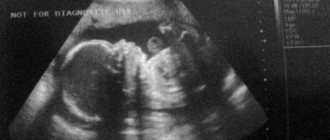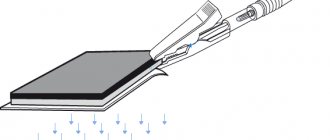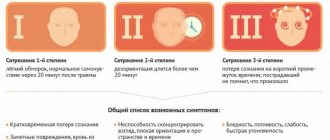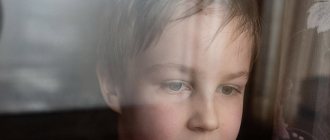Memory is the ability of our brain to store, process and organize received information. Without memory, a person would not be able to accumulate knowledge and evolve. Many details are stored in the mind every day so that in the future it will be easier for us to make decisions, find a way out of unusual situations, and improve living conditions.
There is an opinion that the Internet replaces memory: why fill your head with unnecessary facts from childhood if you can find anything in a couple of seconds? It turns out that not everything is so simple. Memory includes reflected experience, which shapes reactions, values, and cognitive abilities. You need to develop the necessary skills from childhood. We'll tell you how to do it.
Choice of drugs
It was said above that to improve brain activity, it is best to consult a doctor, as he will be able to diagnose the disease and find the root of the disease. However, if the rate of depression of brain activity is quite low and is more likely associated with external factors (fatigue, stress, lack of sleep, etc.), then you can independently select not too powerful means, based on several criteria:
- age;
- side effects from drugs;
- efficiency;
- price.
Drugs sold in free form
Most serious drugs for improving brain function are sold exclusively by prescription, however, there are a number of very effective and safe drugs that you can simply buy at the pharmacy.
- Glycine. One of the most popular drugs in Russia. It is used for stress, increased nervous excitability, and to improve sleep. Its task is to increase the activity of gray matter. Common among students, sometimes given to high school students. The drug has no physical or mental side effects. Take one tablet three times a day.
- Vitrum Memory. The product is recommended for decreased ability to concentrate and memory impairment. The drug performs several functions at once - improves blood circulation in parts of the brain, prevents hypoxia and generally helps supply the brain with the necessary amount of oxygen. Recommended dosage rates are one tablet twice a day for three months. Side effects include headaches and allergies in the form of skin irritation.
- Undevit. A complex of vitamins recommended for older people, as well as during the period of recovery after illness. You should take one or two tablets of vitamins a day for a month.
- Aminalon. Helps stabilize nervous processes, improves metabolism, helps remove harmful substances and toxins from the blood. Recommended for people with diabetes and those who have suffered a traumatic brain injury. Recommended doses depend on the patient's age. There are side effects, so you should strictly follow the dosage and use the medicine after consulting a doctor under his supervision.
- Bilobil. A sedative, it helps well with nervous disorders, sleep disorders, and obsessive states. Promotes oxygen saturation of the peripheral parts of the brain. Dosage – one capsule three times a day for at least three months.
Brain pumping without medications
To improve brain function, the first thing you should do is get your lifestyle in order.
It is important to get enough sleep, follow a daily routine, and eat right at least three times a day. In addition, you should limit your consumption of alcohol, coffee, and quit smoking.
Abuse of alcoholic beverages has a very detrimental effect on intellectual activity. Alcohol affects the blood vessels of the brain and can cause spasms, which leads to the outflow of blood from the brain
The result of addiction to alcohol is memory impairment, inability to concentrate and maintain attention for a long time.
Healthy foods for the brain
To improve brain activity, it is recommended to consume foods rich in vitamins, microelements, fatty acids and complex carbohydrates.
Examples of such products include potatoes, eggs, cereals, blueberries, nuts, seeds, seaweed, avocados, and peanut butter. Drinking green tea is beneficial. All these products contain many useful microelements, but to obtain them it is not necessary to include only the above-mentioned foods in your diet. It is enough to enter one of the proposed options into the menu once a day, and this will have a beneficial effect not only on mental activity, but also on the general condition of the body.
Educational games for children
Game 1 "Pathfinder"
The Pathfinder game develops memory.
The main essence of the game is to remember the tracks of animals and repeat them.
In this game, animal tracks appear on the screen for a few seconds, look carefully and remember in what order the tracks appear. Then you need to show which trace appeared first, and which second. Read the question correctly. If you answered correctly, then you score points and continue to play.
Play now
Game 2 "Diamonds"
The game "Diamonds" develops memory.
The main essence of the game is to remember the order of the figures that light up on the screen and repeat it.
The figures light up on the screen one by one, remember the order in which these figures light up and repeat it. You can do this using the mouse or the cursor on the keyboard. If you answered correctly, then you continue to score points and play further.
Play now
Game 3 "Speed Comparison"
The game "Speed Comparison" develops memory and attention.
The main point of the game is to remember the previous item and compare it with the current one on the screen.
An object is displayed on the screen, you remember it and compare it with the next object, if the object is the same, then answer “yes”, if different objects answer “no”. You can answer using the “yes” and “no” buttons located at the bottom. If you answer incorrectly three times, the game ends. If you answer correctly, you continue to play and score points.
Play now
Game 4 “Complicated high-speed movement”
The game “Complicated high-speed movement” develops memory and attention.
The main point of the game is to remember the previous item and compare it with the current one on the screen.
An object is displayed on the screen, you remember it and compare it with the next object, if the object is the same, then answer “yes”, if the objects are different, answer “no”, if the objects are similar, answer “partially coincides”. This game is designed to increase speed. If you answer incorrectly three times, the game ends. If you answer correctly, you continue to play and gain points.
Play now
Game 5 “Memorize and call”
The game “Memorize and Call” develops memory and attention.
The main point of the game is to remember the numbers in the table and call them in ascending order.
In this game, a table with numbers is given, first the numbers are shown on the screen, you need to remember them, then the numbers are covered. Remember where the smallest number is located and click on this cell, then click on the cell where the next number goes in ascending order. If you answered correctly, then you score points and continue playing.
Play now
Game 6 “Numerical Reach”
The game "Number Span" develops memory and attention.
The main point of the game is to remember the previous number and compare it with the current one on the screen.
In this game, numbers appear on the screen for a few seconds; you need to remember them, then they disappear, and an empty window remains, you need to remember and write in the empty window the numbers that you remembered. If you remember the numbers correctly, you move on and score points, but If you get the numbers wrong three times, the game ends.
Play now
Game 7 “Memory Matrix”
The game "Memory Matrices" develops memory and attention.
The main essence of the game is to reproduce the position of the shaded figures.
In each round, a playing field consisting of cells is shown, a certain number of cells are filled in, the rest is left free. You need to remember the location of these cells and repeat their position after they have disappeared on the screen. If you mark the cells correctly, then you score points and move on to play.
Play now
Game 8 "BrainFood"
The BrainFood game develops memory and attention.
The main essence of the game is that in each round a set of elements is shown; you must choose from the set the one that has not yet been selected in previous rounds.
In this game, drinks and food are offered on the screen. You have to choose one thing. In each subsequent round, you must choose a different dish that differs from the previously selected dishes. You need to remember and always choose different dishes and drinks. If you answer correctly, then you gain points and continue to play.
Play now
Game 9 “Super Memory”
The game “Super Memory” develops memory and attention.
The main essence of the game is that every round a new object appears on the screen; you need to indicate it by clicking on it.
In this game, a round starts and a picture appears on the screen, in the next round another picture appears and the old picture is saved. You only need to click on a new picture, you don’t need to click on old pictures again. If you answer correctly, then you gain points and continue to play.
Play now
Game 10 "Spatial speed comparison"
The game “Spatial Speed Comparison” develops memory and attention.
The main essence of the game is a series of drawings on the screen; you need to compare them with the previous drawing and answer whether it is repeated or not.
In this game, a figure appears on the screen, you have to remember it, then it disappears and another figure appears. Compare the figure on the screen with the previous figure. You can answer using the “yes” and “no” buttons below. If you answer correctly, you score points and play further.
Play now
Drugs to improve memory
Pantogam tablets and syrup: a nootropic with an impressive effect Using Piracetam to enhance attention and memory Phenibut to improve memory
Nootropics are divided depending on the main point of application, chemical structure and main effect. Based on the problem posed, you can select the most optimal drugs to improve memory. Some medications are responsible only for the development and improvement of memory by providing nutrients and preventing brain hypoxia. Others have a vasodilating effect. For organic pathology, which has an additional clinical manifestation in the form of depression or psycho-emotional instability, you can select nootropics with sedative or stimulating effects.
The most popular representatives in the pharmaceutical market:
- Piracetam;
- Pantogam;
- Aminalon;
- Phenibut;
- Vinpocetine;
- Glycine;
- Cinnarizine;
- Phezam;
- Trental;
- Divaza;
- Noopept.
Particularly popular are combination drugs that include several active substances aimed at achieving different effects or enhancing one effect.
What medications can be given to children?
In the case of children, self-prescription of the drug is unacceptable. Consultation with a pediatric neurologist or pediatrician is required.
The reasons why children need to take a course of pills for memory and brain function are poor attention and memorization, restlessness, hyperkinesis, motor aphasia and dyslexia.
Nootropics should always be only an integral part of a comprehensive treatment. In childhood, physical methods of struggle are of great importance: hardening, massages, development of fine motor skills of the hands. Don’t forget about B vitamins, fat-soluble representatives
They ensure the integrity of the myelin sheath and adequate nutrition of the glial system, which is important in strengthening the central nervous system
Preference in pediatrics is given to the following drugs:
- plant extracts;
- Pantogam;
- Picamilon;
- Glycine;
- Nootropil;
- Cortexin;
- Semax;
- Sermion.
Peculiarities of memory of preschoolers and primary schoolchildren
Children's memory needs a special approach. Features of perception and memorization of information depend on the age period. Let's consider the difference between preschoolers and children who study in elementary school.
Preschoolers can be divided into several age groups.
- From 1 year to 2 years, the baby’s nervous system improves, and after 2 years, visual memory predominates. The first memories associated with visual factors arise.
- From 2 to 4 years old, a child works with mechanical memorization of details of the surrounding world, repeating words and actions after his parents. Motor memory also improves.
- From 4 to 6 years old, the child begins to rely on involuntary memory based on personal impressions.
It is difficult for schoolchildren (especially first-graders) to direct their willpower to memorize. Involuntary memory based on novelty dominates. Knowledge is best perceived by the child through direct contact with the teacher. One of the main tasks of elementary school is to improve voluntary, conscious memory.
Figurative and emotional memory become leading. Through these channels of perception, the child will learn the basics of mathematics, languages, and natural sciences. You cannot completely rely on emotional memory: in a stressful situation, children will not be able to reproduce acquired knowledge, because the sphere of feelings will be inhibited.
Teachers and parents should gradually introduce exercises into the lesson program to develop logical, figurative memory. This is exactly what adults have. However, you shouldn’t forget about other options either.
How to become the owner of a perfect memory
Daily stress does not pass without leaving a trace. They have a direct impact on the thought process when there is too much information, much of which is unnecessary. As a result, a person begins to forget most of the important “little things”, for example, when going shopping, they do not remember what they intended to buy, or whether they turned off the gas in the house when leaving. Forgetfulness cannot be ignored at any age, since the situation will only get worse with age.
Among the available ways to improve memory and brain activity, the following are considered the best:
- Enrichment of the diet with carbohydrates. The structure of these nutrients is converted into glucose. To replenish the supply of this substance, it is enough to have breakfast with an omelet, a slice of bread baked from whole grains, and also an omelette.
- Dancing and sports. You don't have to practice for hours. It is enough to perform some exercises to stimulate blood flow to the brain. Scientific studies have shown that people who move actively absorb information 20% faster than those who neglect physical exercise.
- Typing. The development of memory is well facilitated by texts typed in unusual text, but the effect is not noticeable immediately, but gradually.
- Search for information. Don't miss the chance to learn more than just fulfill your job responsibilities. This will undoubtedly help stimulate brain activity.
- Record places in memory. People parking their car in a parking lot can stand next to it for a while and look left or right to remember where the car is.
- A small amount of quality alcohol. A small portion before dinner helps develop memory well, as it stimulates blood circulation.
- High-quality teeth cleaning using dental floss. A large number of bacteria remain on the gums during the day from the food consumed during the day. And if you do not get rid of them carefully, they have a bad effect on the functioning of all organs.
These simple and affordable ways to improve memory are quite easy to implement into your life.
How to improve attention and memory in a child?
To achieve the desired effect, it is important to adhere to an integrated approach.
Games, exercises, and memorizing poems give excellent results, but a child’s life should also include sports, as well as proper nutrition and a normal work and rest schedule. In severe cases, medication may be necessary.
Preschool age
Parents may notice a problem such as poor memory in a child even in kindergarten. Children have difficulty memorizing poetry, cannot master the information presented to them (names of flowers, animals, plants, etc.), and are not able to remember the plot of even the simplest fairy tales.
Preschool is the ideal time to train your child and improve his skills through simple activities.
What do we have to do:
- read books and poems together. Learn quatrains by heart. This is one of the simplest, most accessible and effective methods;
- ask to tell you how your day went. Questions should gradually become more complex, for example, you need to start with simple ones: “what did you play today?”, “with whom?”, “what did you eat?”. Gradually, the child will tell everything in detail, and in kindergarten or anywhere else he will become more observant. It’s great if mom and baby discuss and analyze everything: nature on a walk, a cartoon they watched, etc.;
- It is important to include sports activities in your child’s life - they help the brain work much faster;
- It is useful to ask your child to compose a story using given pictures. You need to start with a few, for example: a dog, a bone, a booth, a sun. The more words, the more difficult it is to compose a story. An example of what should happen: “The dog was sitting and gnawing on a bone. The sun came out and it became hot. She went to her booth." Gradually the number of word-pictures needs to be increased.
Comprehensive development is the key to excellent memory, and any type of activity is useful: music, a foreign language, dancing.
Schoolboy
When a child begins to attend school, he is literally bombarded with a ton of information—in such a situation, problems with memory and attention occur in half of the students. Difficulties are observed in both boys and girls.
Exercises for memory development for younger schoolchildren are more complex, since it is assumed that the student already knows how to read and write.
How to develop memory in a 7-8 year old child:
- take a book, select a page, ask the trainee to cross out all the letters “A” and underline the “K”. This is an excellent workout for developing memory and attentiveness. Letters can be changed every day;
- drawing from memory. The adult shows the picture for 30 seconds, then the child must depict what he saw on paper;
- write 10 words on a piece of paper and show it to the player. Then the child must reproduce them from memory in a random or specified order (on paper). The second option is more complex;
- retelling The parent reads a short story, the child must reproduce it in as much detail as possible;
- comparison of lists. They write 10 words on two sheets of paper, three of which appear in both places. First, the child studies the first sheet for 1 minute, then it is replaced with another. The task is to find 3 words that have already been encountered.
Additionally, you can use the following methods:
- building associations . An adult should ask the child to name as many words as possible that relate to a particular object, event, phenomenon, or other things;
- Cicero's method, or “Everything has its place . You need to invite the child to remember 10 words. A nursery or any other room serves as an assistant. For example, words: mom, spoon, yogurt, etc. We compose a story: “mom is standing at the stove, in her hands is a huge spoon,” “yogurt is in the refrigerator,” etc. When it is necessary to remember all 10 words, the trainee will simply reproduce in memory where each item belongs.
The main rule when organizing classes with schoolchildren is adherence to the principle of reasonableness. If the child is tired, overloaded with lessons or does not want to exercise now, it is better to postpone mental training.
Super-pill for the development of brain activity and memory: review of the safe troika
- Glycine is commonly cited as one of the first drugs prescribed to improve brain activity and memory in both adolescents and older adults. It is especially popular among students during sessional workloads, which is explained not so much by its high efficiency as by the wide dissemination of information about it among students.
Among the side effects, the most often mentioned are individual allergic reactions that are possible when using any drug, tinnitus, drowsiness (in case of overdose). Available in the format of sublingual tablets and designed for use three times a day.
- Piracetam is also often used to restore memory in older people, for dizziness, Alzheimer's disease, in cases where the brain receives insufficient blood supply, as well as for atherosclerosis, intoxication, and depression. It ranks 2nd in popularity among students because it improves blood circulation in the brain, thereby helping to improve attention and memory.
Side effects include tremor, insomnia, irritability, restlessness
the patient may pay attention to gastrointestinal disorders and heart problems. Contraindications include allergies when consuming essences and fruit juices, acute renal failure
Piracetam for 8 weeks (including). Available in the form of granules (for children), tablets, ampoules capsules (designed for age).
- Noopept. In the search for a way to form perfect memory, this tool is called one of the first, since it optimizes all stages of the memorization process:
- the initial phase of information processing,
- reliable storage of received information,
- timely and easy retrieval of the necessary material.
The effect is associated with the formation of cycloprolylglycine, which has anti-amnestic activity, and with the choline-positive effect of Noopept. The drug increases the amplitude of the transcallosal response, which facilitates associative connections in cortical structures that arise between the hemispheres.
The course of treatment lasts from one and a half to three months. If necessary, a second course can be carried out a month later. But among the contraindications is the fairly common lactose intolerance. Other restrictions include pregnancy, age (up to 18 years), severe kidney and liver dysfunction, and glucose-galactose malabsorption.
The principle of action of nootropics
Natural nootropics can trigger the synthesis of ribonucleic acid and protein compounds in the central nervous system. The medicine at the cellular level reduces the appearance of free radicals. The main effect is antioxidant. The main effects of the drugs are:
- calming;
- psychostimulant;
- antidepressant;
- antiepileptic;
- adaptogenic;
- mnemotropic;
- vasovegetative;
- antiparkinsonian;
- nootropic;
- increasing clarity of consciousness and others.
Nootropics of the new latest generation do not cause psychomotor agitation and addiction in patients. Their action is based on the following processes:
- launching energy processes in neurons;
- improvement of polysaccharide processing procedures;
- decreased need of nerve cells for oxygen;
- suppression of free radicals in cells;
- launching plastic processes in the central nervous system.
New effective nootropics trigger adenylate cyclase, increasing its concentration in nerve cells
Thanks to all the effects, a person’s memory, thought processes, attention are strengthened, and the ability to learn increases.
Nootropics for VSD are prescribed to improve the metabolic processes of nervous tissue and blood supply. But nootropic courses are only part of complex therapy.
Nootropics and harmful alcohol are incompatible during therapy. Drinking alcoholic beverages has a negative effect on the body. Alcohol affects the cells of the nervous system. Stimulants are used to bring the brain into a natural rhythm.
Therefore, there will be no therapeutic effect for alcoholism. The medicine improves blood flow in the brain, for this reason alcohol quickly seeps into the tissues and cells of the nervous system. The result is a stronger destructive effect of alcohol.
How to improve memory with nutrition
To summarize, we can say that to improve memory and brain function you need to:
- completely give up bad habits;
- review your regular diet, include more foods rich in vitamins and polyunsaturated fatty acids;
- drink high-quality boiled coffee and replace black tea with green;
- use vitamin-mineral complexes and dietary supplements that improve brain function: for example, Omega-3 preparations from Herbalife.
Not only polyunsaturated fatty acids will help support higher nervous activity. There are other Herbalife products that are good for the brain:
- Nightworks. A complex designed specifically for the heart and blood vessels: normalizes blood pressure, maintains vascular tone and normalizes blood circulation.
- "Schizandra." It has a powerful antioxidant effect and contains a source of selenium, which has a beneficial effect on the cardiovascular system and helps cleanse the body of free radicals.
- "Roseguard." A complex based on rosemary and turmeric, which not only supports the body’s natural defenses, having a beneficial effect on nerve cells, but is also a complete antioxidant. In addition, as mentioned above, turmeric has many positive properties.
Of course, you can improve memory and brain function not only in these ways: walk more often in unknown places, watch movies, read books, listen to new music. The more information the brain receives from the outside, the more trained it becomes. This means that his cognitive functions will only develop with age!
Learn how to eat a balanced diet and control your weight
27 October 2021, 18:00
Add a review
School issues
Rating 61Poor concentration means poor academic performance, so it is important for parents to teach their child to concentrate |
- Type
- Ask
- Send to a friend
- Share
- subscribe to news
Lack of concentration is a common problem among children. Their attention is so fickle that even new toys attract them only for a few hours.
The situation gets worse when parents force the child to do various activities (like studying) that require mental effort and concentration. But just because a child can't concentrate doesn't mean they have a learning disorder (such as attention deficit hyperactivity disorder).
Let's look at the main reasons for poor concentration in children and try to figure out how parents can help their child solve this problem. First of all, you should find out whether the child really cannot concentrate.
Signs of poor concentration in children
A child who has trouble concentrating may exhibit some of the following signs:
- the child cannot sit in one place and is easily distracted;
- he often loses things and is disorganized;
- he has difficulty learning and remembering;
- he cannot concentrate to complete his homework;
- he constantly “has his head in the clouds”;
- his handwriting is poor compared to his peers;
- he can be aggressive or capricious;
- his motor skills are poorly developed (for example, he cannot run or jump well).
Reasons for low concentrations in children
1. Insufficient sleep. Children need 8-10 hours of sleep every day, depending on their age. If your child has a habit of going to bed late, change this habit and establish a routine for him. Help your child go to bed earlier so he gets more sleep.
2. Stress in the family . What causes stress in a child? It could be anything from school to family troubles. Excessive pressure on a child, instructions to do well in school, play sports, etc., family quarrels and lack of parental attention - all this can cause stress. Try not to put pressure on the child and avoid disputes in the family.
3. Poor nutrition. Poor diet, particularly foods high in sugar and fat, often leads to poor concentration. Eggs, whole grain bread, milk, chicken, meat, and fish are good for a child. Avoid giving your child coffee, energy drinks, or junk food.
4. Complex tasks. The child usually refuses to complete tasks that seem too difficult to him. The complexity of the task is determined by the age of the child. Therefore, do not give your child work that is too difficult or tasks that he cannot understand.
Rest, healthy sleep and a balanced diet will help solve your child’s concentration problems.
How to develop concentration in a child
Let's look at a few more ways to help your child focus:
1. Observe your child
- Sit at your child's side and watch him as he plays, talks, or reads. Look at his facial expression and try to understand what interests him;
- Talk to your child's caregiver or teacher. Because the teacher interacts with the child frequently, he can give you a lot of valuable information;
- do not scold the child, be patient with him and try to understand him.
2. Minimize distractions
Children cannot filter noise. Therefore, you need to create the right atmosphere to allow him to concentrate.
- if your child is doing something near you, do not talk on the phone or watch TV;
- Set a good example for your child. Set up "quiet time" during which you read a book or do something while your child does his homework. Your example will motivate him to do his job better.
3. Reduce the time your child spends in front of the monitor
Instead of letting your child play computer games, play traditional games with him:
- Buy your child games that develop creative thinking in a fun way;
- Give your child a specific time when he can watch TV or sit at the computer. This way you can control the time he spends in front of the monitor;
- Set an example for your child: watch less TV and use your mobile phone less.
4. Set goals
- goals must be achievable;
- Divide your child's study time into several categories;
- create a schedule for all things: games, studies, hobbies, etc.;
- Give your child symbolic rewards when he or she performs well on assignments throughout the week or month.
5. Give your child daily chores
- Give your child simple daily chores that require order;
- Assign your child age-appropriate tasks (for example, setting the table, helping with cooking, sorting clothes after washing, etc.);
- if you have a library at home, ask your child to arrange the books in alphabetical order;
- Give your child new challenges regularly to keep him interested.
6. Divide large tasks into smaller ones
Sometimes big tasks scare children.
- It will be easier for your child if you divide a large task into several small ones;
- The child will not feel burdened if he performs tasks that do not take much time. If your child seems confused when he has to read a chapter from a textbook, let him read a page or a few paragraphs at a time.
7. Appreciate your child and give him rewards
- the child must be motivated to complete tasks;
- he must feel capable of completing the task. This keeps him motivated and focused on completing the task to the best of his ability;
- When you see your child doing a better job, give him a friendly pat on the shoulder or come up with some kind of symbolic reward.
8. Seek help from your school psychologist
A school psychologist, working with a child outside of school hours, can teach him to concentrate. You should also join these classes to learn first-hand how to develop concentration.
9. Check for learning disabilities
- contact a child psychologist for a diagnosis;
- diagnostics will help to understand the reason for the child’s poor concentration, because the latter is not always associated with attention deficit hyperactivity disorder;
- To increase concentration, some children need medication, others need psychological consultations, and others simply need a favorable environment.
10. Keep your child physically active
Research shows that outdoor games and activities (running, cycling, football, etc.) are beneficial not only for physical development, but also for the child’s psyche. These activities help the child concentrate better on what he is doing.
11. Do breathing exercises
Adequate oxygen helps the brain function properly. To do this, perform breathing exercises with your child:
- You can do the exercises in the room, near the window, on the terrace or in the garden;
- ask the child to lie on his back. Place a soft toy on his stomach. Then ask your child to take a deep breath and lift the toy as high as he can without touching it with his hands. If the toy rises high, it means there is a lot of air in the lungs.
12. Do yoga
Some yoga exercises can improve concentration in children. They also improve posture, relieve tension and relax the child.
13. Use fun activities to improve your child's concentration.
The child will concentrate more on those activities that seem fun to him:
- spend your free time and weekends playing fun games with your child;
- Coloring pictures helps a child to increase concentration.
Rate the publication
Article rating: 4.69
out of 5 based on
13
ratings.
Related links:
- ▶ How to improve a child's attention span
- ▶ Activities that promote sustained attention
- ▶ Vitamins to improve memory and attention
- ▶ We develop children’s skills to manage emotions
- ▶ More articles on school topics
Child development 06/14/2018
The most effective nootropic drugs for improving memory
| Name | at what age should you take it? | price in Russian rubles |
| drug Nootropil | from 3 years old child | 130,00 — 330,00 |
| medicine Cavinton | after adulthood | 170,00 — 730,00 |
| medicine Aminalon | no age limit | 120,00 — 230,00 |
| herbal medicine Bilobil | from 18th birthday | 260,00 — 1000,00 |
| Divaza tablets | from 18 calendar years | 260,00 — 350,00 |
| medication Piracetam | no age limit | 30,00 — 140,00 |
| drug Encephabol | no age limit | 650,00 — 1000,00 |
| drug Vitrum memory | no age limit | 530,00 — 2200,00 |
| vitamins Undevit | no age limit | 30,00 — 90,00 |
| herbal preparation Ginkgo Biloba | from 18 years of age | 100,00 — 2000,00 |
| medicine Glycine D3 | no age limit | 180,00 — 500,00 |
| drug Picamilon | no age limit | 70,00 — 170,00 |
| drug Cerebrolysin | from 5 calendar years | 660,00 — 1500,00 |
| medicine Glycine | no age limit | 50,00 — 200,00 |
| medical drug Intellan | no age limit | 180,00 — 230,00 |
| Memory restoring agent Noofen | child over 8 calendar years old | 70,00 — 470,00 |
| Phezam tablets | up to 5 years | 240,00 — 360,00 |
A drug that improves the functioning of brain cells - Piracetam
Pharmacological actions of this drug are:
- improvement of blood flow in cerebral vessels;
- accelerated utilization of glucose molecules occurs;
- the potential of the brain and energy centers increases;
- thinking ability accelerates.
This drug was developed 45 years ago and was intended to treat sclerosis in the elderly. This drug is used all over the world for the treatment of such pathologies in adult patients:
- after a stroke;
- in the post-infarction period;
- for Alzheimer's disease;
- for central nervous system disorders;
- with an increased blood pressure index;
- with alcohol addiction;
- when the body is intoxicated with nicotine and alcohol;
- after overdose and intoxication with medicinal drugs;
- for pathologies of the blood flow system.
Piracetam was also used to improve brain function in the following pathologies:
- after cerebral hypoxia during the period of intrauterine formation;
- with a head injury, at the time of passage through the birth canal;
- consequences of birth trauma;
- increased mental distress.
Side effects of Piracetam:
- headache;
- nausea;
- tremor of the limbs;
- increased drowsiness;
- weakness of the body.
Improving memory and brain function - the drug Nootropil
The drug Nootropil has an active substance - piracetam.
This drug is used for the following pathologies:
- cerebrovascular insufficiency;
- intoxication of the body, which damages brain cells;
- after a cerebral hemorrhage (stroke);
- Alzheimer's pathology;
- Parkinson's disease;
- with vertebrobasilar insufficiency.
In childhood, the drug Nootropil is used to relieve the effects of negative factors on the brain:
- after intrauterine brain hypoxia;
- after an infection during fetal development;
- after suffering injuries during the passage of the birth canal;
- with cerebral palsy (cerebral palsy);
- with mental retardation;
- with inattention syndrome (attention deficit), which occurs in a severe stage;
- for childhood dyslexia, during the period of mental development of the child.
Side effects of Nootropil are characterized by the following symptoms:
- increased sexual arousal in men;
- increased libido in young women;
- nervousness;
- increased nervous excitement;
- pain in the gastrointestinal tract.
Brain training
For both children and adults, doctors recommend another completely inexpensive, but very entertaining method of improving memory - mental training. This method has no contraindications and can be practiced either alone or with the whole family.
You can learn poetry, solve crosswords, learn a new foreign language, master new professions, solve logical problems, memorize the sequence of upside down playing cards. What activity to choose is dictated only by your imagination. These include games “in words”, “in cities”, “in synonyms”, and counting in reverse order in Russian and foreign languages, and selection of rhymes, and much more.
Games and exercises for memory development
You can train at home. It is not necessary to allocate free time for classes - at first, the exercises are performed in conversation with the child, almost in passing.
Visual memory
- Show the pictures for 30 seconds, then cover them with a sheet of paper and ask the child to describe the depicted objects in detail: color, shape, location.
- The following exercise works well. Place the objects in a chaotic order and let them observe them. Then the child will have to turn away, and you will remove one detail. The baby’s task is to quickly name the missing object.
- Finding differences between images develops not only memory, but also attentiveness. Print or buy a book of puzzles that ask you to describe what has changed in the second picture compared to the first.
- Learn with your children important information that will be useful in a difficult life situation: house address, phone numbers of family members, last name and first name. Make a sign and put it in a visible place.
Auditory memory
- Read books out loud. After reading each chapter, the child should retell the content. Try to read with expression and emotion, so that events are remembered more easily.
- Learn poems by heart with your child. Parents often consider this activity useless, but at an early age it is critically important for the full development of the child. It is important to hear the rhythm of the piece and place the accents correctly.
- Ask again. What did the cartoon heroine say a second ago? What was the intonation? What did her friends say?
Motor and tactile memory
- Pieces of fabric with different textures (linen, wool, silk) are laid out on the table. The child must touch them blindfolded and after a few minutes name the sequence in which they were located.
- Dancing. Gather the guys in a group and demonstrate dance movements, moving from simple to complex, combined. Then the children will repeat to the music what was demonstrated to them.
- Game with prohibited movements. Players repeat every action of the leader. The adult agrees with the children which movement cannot be repeated (for example, clapping). Whoever is inattentive is eliminated.
Associative memory
- To develop associative memory, an individual approach to the student will be required. It is advisable to form images based on personal memories. For example, when memorizing characters, remind your child of real life incidents. Are the heroes celebrating their birthday? Refresh your memory of the last party in honor of this holiday.
- The words for which the child selects epithets are written in a column (morning - fresh, early, autumn - golden). The exercise also enriches your vocabulary.
Emotional memory
- Reading literary dialogues by role helps. Penetrating into the character's character, the child identifies with him and remembers lines faster.
- Performances. Cozy home performances with friends and relatives help get rid of shyness, develop creativity, and strengthen emotional intelligence, which is important for communication in society.
Verbal-logical memory
- When discussing the past day with your children, ask them to build a storyline by asking leading questions. Focus on the little things: what the weather was like outside, what your friends were talking about and why.
- Read books out loud. After reading each chapter, the child should retell the content. Try to read with expression and emotion, so that events are remembered more easily.
- Write on cards 3 words related in meaning (tree, bird, nest). Make several variations and close one token. The child should remember and name the word that you hid.
Figurative memory
- Learn poems by heart with your child. Parents often consider this activity useless, but at an early age it is critical for full development. How to learn poetry correctly? Build images in your imagination so that each line sounds bright and thoughtful. Explain unclear expressions to your child, look in the dictionary.
- Images help remember the sequence of objects. Place cubes with pictures in front of your baby. The task is to come up with a story about each picture, linking them together. The creative component and imagination are also involved.
Creatine
Creatine, a nitrogen-containing organic acid found in animals, has quickly become a popular dietary supplement—and not just for its ability to increase muscle strength by increasing energy flow to cells and actively promoting muscle growth.
Today we will leave these physiological properties of the nutrient alone, and will pay all attention to the ability of creatine to improve memory and concentration. Scientists have found that creatine plays a key role in maintaining energy balance in the brain and acts as a buffer of intracellular energy reserves in the cytosol and mitochondria
Start taking 5 grams per day, or better yet, follow the instructions for use of the drug you are holding in your hands.
Creatine
Optimum Nutrition Creatine 2500 Caps Pure creatine monohydrate. Increasing endurance and training efficiency!
Universal Nutrition Creatine Maintains stable ATP levels in muscle tissue. Incredible gains in muscle strength and performance!!
Why is it so important to develop memory and attention in schoolchildren?
It is very important, even before the child enters school, to work with him on the development of such important mental functions as memory and attention. If these processes have not fully developed and do not correspond to the student’s age, then this directly affects his academic performance. Which, in turn, directly depends on how accurately and completely the material is absorbed.
The reason for low performance and poor perception may be:
- Lack of speech development
- Poor child health
- Low level of memorization and memory capacity
These and other reasons lead to the child losing faith in his strength and abilities. It seems to him that the problems with studying that arise due to insufficiently developed memory and attention processes are a consequence of something else. For example, a bad teacher or classmates who do not allow you to concentrate. At the same time, if you do not pay due attention to the development of important mental functions, then the situation will only get worse with each academic year.
Prescription Nootropics
One of the available and widespread domestic drugs is Piracetam, created in 1972. It was prescribed to elderly patients who had circulatory problems in the brain.
Based on piracetam (the active ingredient), many new products have been created that are now used throughout the world. The medicine is ideal for improving memory and brain function in adults with disturbances in the functioning of the central nervous system, with mental illness and various addictions. Sometimes prescribed to children after hypoxia and birth injuries.
Prescribed after a cerebral infarction and in cases of cerebral vascular pathology, intoxication, and dementia. In pediatrics, it is prescribed to eliminate injuries after childbirth, for children with cerebral palsy and with mental retardation.
Phezam contains both piracetam and cinnarizine as active ingredients. Not prescribed for children under five years of age. Adults take it for problems with blood circulation in the brain, intoxication, diseases of the inner ear, and encephalopathy.
Tablets for improving attention and strengthening memory “Vinpocetine” should not be taken by patients under eighteen years of age. Prescribed when there is a history of diseases such as cerebropathy and vasovenetative manifestations of menopausal syndrome in women.
Cerebrolysin injections are successfully used when Alzheimer's disease progresses, there is a history of skull trauma, or hyperactivity syndrome is present.
Drugs to improve memory can be expensive, such as Encephabol (around 1000 rubles). It acts more gently and is indicated for both adults and children with attention deficit, memory impairment, decreased mental abilities, and speech disorders.
Phenotropil tablets are also not cheap (they can cost a little more than 1000 rubles). They are successfully taken by athletes and students to give strength to the body during intense stress (sessions, competitions). The medicine improves brain activity, increases concentration of memory and attention, but causes some agitation. Not given to nursing women, children and hypertensive patients.
Both these drugs and their analogues, presented in large quantities on the pharmaceutical market, can help improve memory. Each of them has both indications for use and contraindications.
Diagnostics of memory and attention
We determine the level of development of all types of memory in a primary school student
The topic of diagnosing memory in primary schoolchildren is quite extensive and complex, so we will consider only one of the methods.
- Auditory memory. You read a series of 10 words to your child, which he must remember and write down.
Words: tree, dog, book, table, window, grass, car, felt-tip pen, mushroom, iron.
- Visual. Invite your child to read a series of 10 words, and then write down those that you remember.
Words: drum, gingerbread, spoon, motorcycle, box, apple tree, photograph, magazine, flower, bear.
- Motor-auditory. The adult reads the words, and the student repeats after him in a whisper and “writes it down” in the air. Then, he must write down on a piece of paper all the words that he remembers.
Words: basket, mountain, bridge, puddle, cat, fork, suitcase, goose, cherry, pencil.
- Combined. The child reads the words together with the adult, pronounces them in a whisper, “writes them down” in the air, and then on a piece of paper.
Words: carrot, cup, parrot, chair, road, sun, soap, bag, lamp, lake.
A conclusion about how developed each type of memory is can be made by the number of points the student scores.
10 – well developed.
9 – 5 is developed at an average level.
5 – 1 low level.
You might be interested in: Comic intelligence test
Finding out the level of memory development in a preschooler
Before we begin to develop existing skills, we must first understand what level our child is at? To do this, you can play several games with him.
- Find a toy. This game will allow you to understand the level of memory, as well as attention and ability to understand instructions or requests from an adult. You need to put several toys in front of the baby that he knows well and offer to close his eyes. Remove 2 toys and ask the child to name the missing ones.
- If a child names 2 correctly, it means that his memory and attention are developing quite well: he is attentive and perfectly understands the adult’s request.
- If the baby named only one toy correctly, then the level of memory development is average, perhaps there is not enough attention, but he understands the request.
- In the third case, the child does not name a single toy correctly and does not understand the meaning of the task. This means that things are not so good, and mom or dad needs to seriously think about adding additional materials to develop these skills in their baby.
- Cards with drawn objects. There should be 10 of them and you can draw or find pictures on them and stick various objects, such as a clown, a flower, a car, a girl, a boy, the sun, a cat, a dog, a tree, a house. Then show the cards to the baby for 5 - 6 seconds and then hide them. Then he must name and remember the names of the objects in random order.
- If the child named 8 - 10 cards correctly, then his memory is in excellent condition. When 5 or fewer cards are named, then you need to seriously engage in the development of the baby.
Older children can come up with more complex problems, for example, with numbers and letters.
You may be interested in What to do if a child does not want to study - Forming motivation to learn
Test "Test your memory." For school age children
Causes of memory problems
Suppression of mental activity, impairment of adequate thinking, concentration and rapid memorization can develop as a result of various disorders in the body, depletion of nutrients and against the background of chronic hypoxia of brain cells.
Impairment of cognitive functions and psycho-emotional stability may be due to the following reasons:
- organic pathology of brain tissue - previous traumatic brain injuries, strokes, neurointoxication and neuroinfections, surgical interventions for seizure activity or neoplasms;
- indirect influence of chronic or acute intoxications of the body - chronic and renal failure, severe acute poisoning, hepatic encephalopathy, metabolic disorders in the body with the accumulation of toxic products, severe viral and bacterial infections;
- unhealthy lifestyle - bad habits (smoking, alcoholism, abuse of toxic and narcotic substances), long-term use of medications that penetrate the blood-brain barrier; systematic lack of sleep and constant tension, exposure to stressful situations, lack of an adequate environment (gas pollution and a large amount of harmful substances in suspended air);
- age-related changes - physiological involution, chronic hypoxia of brain cells due to ischemic zones provoke the development of vascular dementia and organic encephalopathy.
Taking vitamins in old age
In the body of older people, there is often a lack of vitamins involved in metabolic processes. Therefore, when memory problems are detected, doctors recommend taking vitamin complexes with herbal supplements (for example, ginseng), since they have a nootropic effect
It is especially important for older people to drink vitamins A and B and ascorbic acid. But old people often simply forget to drink the medicine due to memory problems
Therefore, it is better to choose a complex that combines daily doses of all the necessary vitamins and supplements that improve the nutrition of brain cells and their functioning.
What brain medications can a doctor prescribe for older people? Pensioners are often prescribed medications containing glycine, an amino acid involved in the metabolic processes of various organs of the body. Indications for the use of medicine for cerebral vessels for elderly people are memory impairment, detection of atherosclerotic changes in blood vessels and amnesia.
Thanks to the tablets, metabolic processes are normalized, as a result, performance and brain activity increase, sleep is normalized, and anxiety states disappear. The advantage of such drugs is a small number of side effects. This is due to the fact that glycine is a natural substance for the body. It is extremely rare that an elderly person may develop an allergy to the drug or an individual intolerance to it. In some cases, we are talking only about mild drowsiness at first.
Folk remedies to improve memory
We will not particularly criticize or condemn new methods, although sometimes they are simply absurd, we will not dissuade the use of some newly invented means, we will simply give the reader the opportunity to think for himself, so to speak, do brain gymnastics, and at the same time turn to the knowledge acquired At school.
Golden water?
We do not undertake to judge how much brain performance increases from drinking “golden” water, but people who have tried its effects on themselves claim that it is necessary to drink it (in addition to nutrition). However, before giving a recipe for preparing such “magic” water, I would like to remind the reader of some school chemistry lessons, in which teachers said that gold does not interact with strong acids, except for “aqua regia” (a mixture of concentrated strong inorganic acids - hydrochloric and nitrogen).
So is it really possible that ordinary water, even if it is boiled for many hours in a row, will suddenly acquire unusual properties that allow it to dissolve at least some amount of this metal, which is resistant in all respects? Maybe “silver” water is easier to make? Or even better - make an “aluminum” medicine, maybe it will work?
For some reason, the “golden” medicine is drunk in very small doses - 1 teaspoon (probably a larger dose is dangerous?) 2-3 times a day. They say that in two weeks not only will your head become clearer, but your heart muscle will also become stronger. Obviously, these recommendations may be of interest to someone who did poorly at school.











